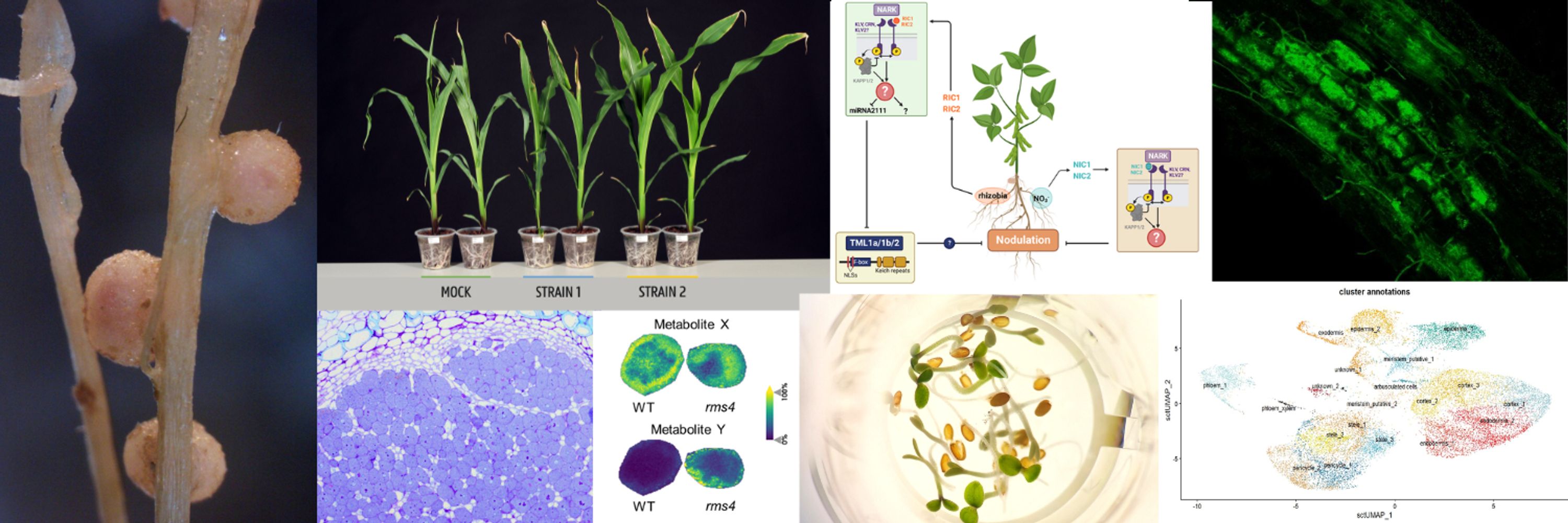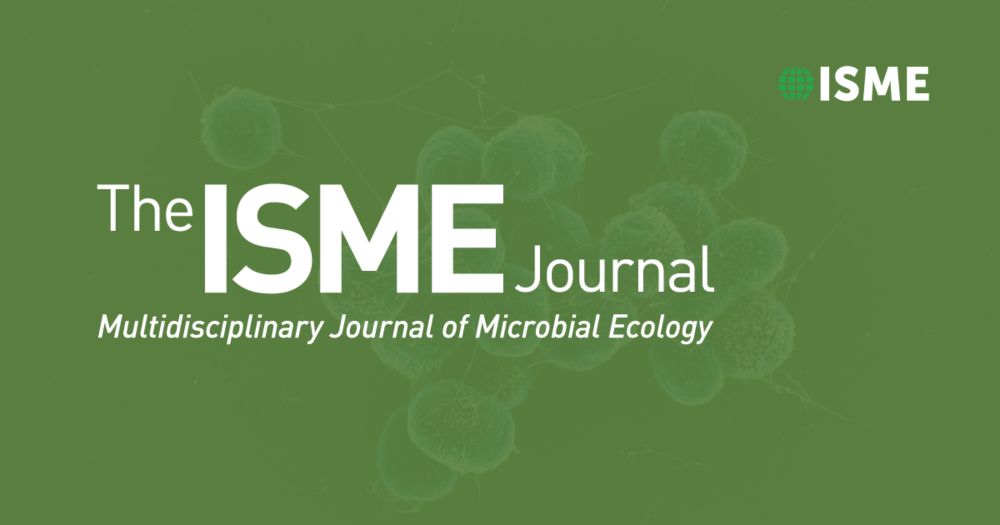

At the Center for Plant Systems Biology, we study how plant roots interact with partners, competitors, and everything in between. By decoding the signals that shape these relationships, we explore how plants adapt. 🌿🔬
Follow us for research updates, discoveries, and lab life!




Among other goals, we tested soybean–rhizobia combinations across Belgium to find the ideal match for northern climates. A huge thanks to everyone who contributed and lent a helping hand along the way!
#plantscience #soy




Among other goals, we tested soybean–rhizobia combinations across Belgium to find the ideal match for northern climates. A huge thanks to everyone who contributed and lent a helping hand along the way!
#plantscience #soy
We uncovered local bacteria that help soybean fix nitrogen as well as a key commercial strain. Turns out, great helpers can be found right in your backyard!
#CitizenScience #SustainableAgriculture #PlantScience #ISMEJournal
We uncovered local bacteria that help soybean fix nitrogen as well as a key commercial strain. Turns out, great helpers can be found right in your backyard!
#CitizenScience #SustainableAgriculture #PlantScience #ISMEJournal
Sugars do more than energize, they orchestrate nitrogen-fixing symbiosis in soybean nodules. Using single-cell & spatial omics, we’re uncovering how TOR, SnRK1 & HXK1 decode this sugary signal.
#SugarSignalling #Legumes #Nodulation #PlantScience

Sugars do more than energize, they orchestrate nitrogen-fixing symbiosis in soybean nodules. Using single-cell & spatial omics, we’re uncovering how TOR, SnRK1 & HXK1 decode this sugary signal.
#SugarSignalling #Legumes #Nodulation #PlantScience
We study how native rhizobia strains interact with soybean, chickpea & pea to support nitrogen fixation in European soils. Our goal? Climate-adapted symbiosis for resilient, sustainable legume cultivation in northern regions.
#PlantScience #NitrogenFixation #SustainableAg



We study how native rhizobia strains interact with soybean, chickpea & pea to support nitrogen fixation in European soils. Our goal? Climate-adapted symbiosis for resilient, sustainable legume cultivation in northern regions.
#PlantScience #NitrogenFixation #SustainableAg
Over 80% of plants team up with arbuscular mycorrhizal fungi to swap sugars for phosphate. But how is this alliance built? We study fungal effector proteins and their plant partners in tomato to uncover the molecular dialogue behind this underground symbiosis.
#PlantScience

Over 80% of plants team up with arbuscular mycorrhizal fungi to swap sugars for phosphate. But how is this alliance built? We study fungal effector proteins and their plant partners in tomato to uncover the molecular dialogue behind this underground symbiosis.
#PlantScience
We study the autoregulation of nodulation (AON) in soybeans—how plants control nodule numbers to balance nitrogen fixation and energy costs. We’re uncovering key proteins involved in this process using cutting-edge proteomics.
#Legumes #Nodulation #PlantScience


We study the autoregulation of nodulation (AON) in soybeans—how plants control nodule numbers to balance nitrogen fixation and energy costs. We’re uncovering key proteins involved in this process using cutting-edge proteomics.
#Legumes #Nodulation #PlantScience
One of our 5 research focuses: plant growth-promoting rhizobacteria (PGPR). We study how beneficial microbes like Streptomyces help maize and wheat grow better and resist stress like drought and disease.
#PGPR #CropScience #Plantscience


One of our 5 research focuses: plant growth-promoting rhizobacteria (PGPR). We study how beneficial microbes like Streptomyces help maize and wheat grow better and resist stress like drought and disease.
#PGPR #CropScience #Plantscience
We're digging deep to understand how roots interact with their environment. By exploring the underground rhizosphere, we work toward more sustainable, resilient plant systems.
Let’s nurture the planet from the ground up. 💚
#EarthDay2025 #PlantScience

We're digging deep to understand how roots interact with their environment. By exploring the underground rhizosphere, we work toward more sustainable, resilient plant systems.
Let’s nurture the planet from the ground up. 💚
#EarthDay2025 #PlantScience
🔗 nph.onlinelibrary.wiley.com/doi/toc/10.1...
#CitizenScience

🔗 nph.onlinelibrary.wiley.com/doi/toc/10.1...
#CitizenScience
#RhizopshereGroup #PlantBiology #SunnyDays

#RhizopshereGroup #PlantBiology #SunnyDays
"Virus-Induced Gene Silencing as a Powerful Tool for Functional Analysis of Nodulation in Soybean"
A fast, reliable VIGS method to study nodulation genes in soybean! Discover how we overcame transformation challenges.
📖: doi.org/10.1111/pce.... #plantbiology #VIGS

"Virus-Induced Gene Silencing as a Powerful Tool for Functional Analysis of Nodulation in Soybean"
A fast, reliable VIGS method to study nodulation genes in soybean! Discover how we overcame transformation challenges.
📖: doi.org/10.1111/pce.... #plantbiology #VIGS
"About How Nitrate Controls Nodulation: Will Soybean Spill the Bean?" explores how nitrate regulates nodulation in legumes, focusing on key molecular players & soybean.
🔗 onlinelibrary.wiley.com/doi/10.1111/...
#PlantBiology

"About How Nitrate Controls Nodulation: Will Soybean Spill the Bean?" explores how nitrate regulates nodulation in legumes, focusing on key molecular players & soybean.
🔗 onlinelibrary.wiley.com/doi/10.1111/...
#PlantBiology
Lab members from our group host this Dutch podcast, exploring how microbes shaped our past, impact daily life, and offer future possibilities—featuring intrigue, betrayal, and hidden connections!
🎧: open.spotify.com/show/4GJBdsn...

Lab members from our group host this Dutch podcast, exploring how microbes shaped our past, impact daily life, and offer future possibilities—featuring intrigue, betrayal, and hidden connections!
🎧: open.spotify.com/show/4GJBdsn...
At the Center for Plant Systems Biology, we study how plant roots interact with partners, competitors, and everything in between. By decoding the signals that shape these relationships, we explore how plants adapt. 🌿🔬
Follow us for research updates, discoveries, and lab life!

At the Center for Plant Systems Biology, we study how plant roots interact with partners, competitors, and everything in between. By decoding the signals that shape these relationships, we explore how plants adapt. 🌿🔬
Follow us for research updates, discoveries, and lab life!


